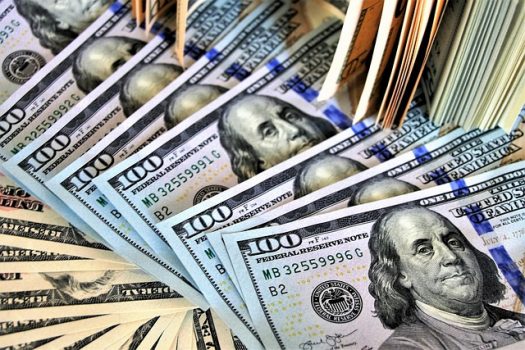 Nigeria’s external reserves have hit a 22-month high, reaching $37.31 billion as of September 18, 2024, marking a significant recovery in the country’s foreign currency position. This level is the highest since November 4, 2022, when reserves stood at $37.36 billion, according to data from the Central Bank of Nigeria (CBN).
Nigeria’s external reserves have hit a 22-month high, reaching $37.31 billion as of September 18, 2024, marking a significant recovery in the country’s foreign currency position. This level is the highest since November 4, 2022, when reserves stood at $37.36 billion, according to data from the Central Bank of Nigeria (CBN).
Despite this improvement, the surge in reserves has not yet translated into a positive impact on the naira, which Bloomberg ranked among the 10 worst-performing currencies globally on September 20, 2024. The external reserves, which represent Nigeria’s stock of foreign currency, are essential for meeting international financial obligations and stabilizing the local currency.
On a year-to-date basis, the country’s reserves increased by 12.99%, or $4.29 billion, up from $33.02 billion recorded on January 2, 2024. A year-on-year comparison shows a 12% growth, adding $4.03 billion to the reserves since September 18, 2023, when they stood at $33.28 billion.
Key drivers of the increase include the federal government’s domestic dollar bond issuances, which raised over $900 million through a $500 million issuance as part of the first series of a $2 billion domestic US dollar bond program. Additionally, remittance inflows from Nigerians abroad contributed $553 million between July 2023 and July 2024. Further inflows were supported by multilateral loans such as the $3.3 billion AfreximBank oil facility and $2.25 billion from the World Bank Group.
Foreign exchange inflows into Nigeria’s economy surged by 57% over the past year due to consistent policies by the CBN. In February 2024 alone, the country recorded $8.86 billion in foreign exchange inflows, compared to $5.66 billion in February 2023.
CBN’s economic report for February 2024 showed a rise in new investments, totaling $1.24 billion, up from $0.33 billion in January 2024. Foreign direct investment increased to $0.06 billion from $0.03 billion the previous month, while portfolio investment inflows grew to $0.80 billion from $0.12 billion. Other investment capital, primarily loans, also saw an uptick, rising to $0.37 billion from $0.18 billion.
The steady increase in Nigeria’s reserves reflects positive trends in foreign inflows, but challenges remain in stabilizing the local currency amid global economic pressures.

NNPC Ltd Enters Final Stages Of Preparation For Public Listing
Dangote Refinery Halts Naira Sales, Cites Dollar-Denominated Crude Costs
Court Orders Arraignment Of Ex-First Bank Executives Over Alleged ₦12.3Bn Fraud
Renaissance Energy Completes Acquisition Of SPDC